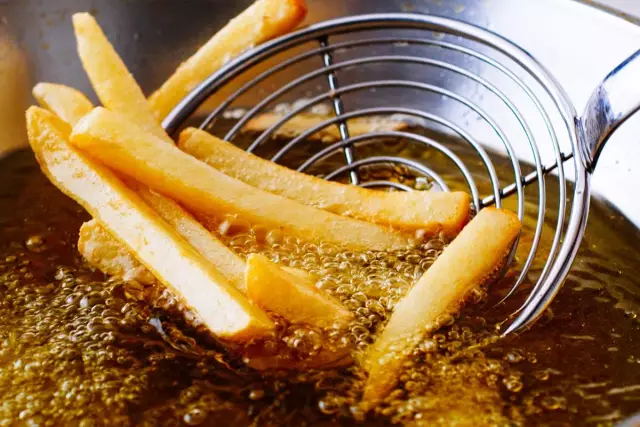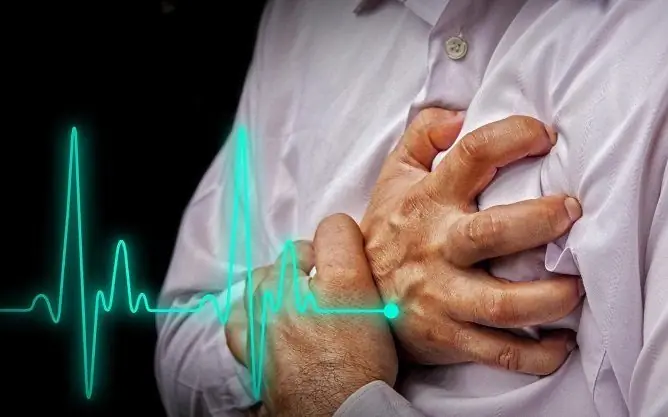- Author Rachel Wainwright wainwright@abchealthonline.com.
- Public 2023-12-15 07:39.
- Last modified 2025-11-02 20:14.
How to end a fast without losing your health: 8 tips
Many Russians regularly observe food restrictions that are traditional for believers, that is, they fast. A competent approach to fasting requires, in particular, knowledge of the rules for safely returning to a normal diet.
On the eve of one of the longest and strictest Orthodox fasts (Great Lent), we will give you some tips to help you survive this period without harm to your health.

Source: depositphotos.com
Increase your fluid intake
In the last week of fasting, it is desirable to increase the amount of fluid consumed by a third. Vegetable broths, decoctions of dried fruits and herbal teas with a mild choleretic effect (for example, infusions of stinging nettle, milk thistle, elecampane, rosehip berries and birch buds) are suitable.
To saturate the body with vitamins, it is useful to drink freshly squeezed fruit and vegetable juices, but their use requires caution, since they contain a large amount of organic acids and natural sugars, as well as shock doses of biologically active substances. In order not to create unnecessary stress on the body, juices should be diluted in half with drinking water.
Get out of the post gradually
Lent lasts seven weeks. During this time, the body manages to get used to the lack of food of animal origin: metabolism is rebuilt, the production of certain enzymes decreases, and the volume of the stomach decreases. Trying to quickly return to a normal diet in such a situation will inevitably result in digestive problems.
Experts believe that returning to animal food after fasting should be gradual and careful: ideally, the transition period to the previous menu should be at least a week.
Eat small and frequent meals
The Easter table is rich in meats and high-fat foods. Believers who have withstood a long fast often make the mistake of trying all the goodies at once. A large amount of heavy food can disrupt digestion in an absolutely healthy person, and for elderly people or those suffering from chronic ailments, of which there are many among believers, this is frankly dangerous.
Nutritionists advise to start breaking the fast with small portions: half a hard egg, a piece of cake, half a glass of yogurt or low-fat fermented baked milk. Cheese and cottage cheese should not be eaten earlier than the second day after the end of the fast, and it is safer to postpone fish and seafood until the third day.
During the period of leaving the post, it is recommended to eat fractionally: take food in small portions 5-6 times a day.
Meat - not earlier than the fourth day
On the fourth day after the end of the fast, you can start eating meat products. Do not overload the digestive system with sausages, smoked meats and fatty meat dishes. Give preference to veal, rabbit, chicken or turkey breast. It is better if the meat included in the menu is boiled or baked. Shish kebab or roast can be tasted no earlier than the seventh day of breaking the fast.
Refrain from coffee and tea
After fasting, it is undesirable to get carried away with strong tea or coffee, which have a strong stimulating effect. Fizzy drinks are also not suitable: in combination with protein foods, they have a bad effect on digestion.
In the first week after fasting, about a third of all fluid intake should be regular drinking water. It is good to add lemon juice to it (one teaspoon per glass). Strong black tea will be successfully replaced by infusions of rose hips, cranberries, lingonberries, black currants and other berries, teas from currant, raspberry and strawberry leaves, mint and lemon balm.
Do not give up spices
Spicy and savory condiments are believed to whet your appetite, but many of them can help you get used to traditional foods. For example, black pepper enhances the secretion of bile, bay leaves stimulate the elimination of toxins from the body, cloves improve digestion, mustard relieves constipation and has anti-inflammatory effects, cinnamon normalizes blood sugar levels.
Eat lots of greens
When leaving the post, intestinal disruptions often occur. The reason is obvious: a sharp rejection of a significant proportion of plant products and their replacement with animal proteins. To avoid this kind of trouble, it is necessary to maintain a reasonable balance between plant fiber and animal protein in the diet. The following ratio is considered the best option: 70% of food - vegetables, fruits and herbs, 30% - meat, eggs and dairy products.
Including a large amount of fresh herbs and vegetables in the menu, it is important to consider one point: these products must be carefully selected and prepared for use. The fact is that spring green and vegetable products are grown in hotbeds and greenhouses; it can contain high doses of chemicals hazardous to health, as well as carry a variety of pathogenic microflora on its surface.
Avoid fresh baked goods
In the first days after fasting, eat pastries and sweet desserts little by little and separately from other dishes. It is important to curb your appetite and not be tempted by fresh baked goods: in combination with protein foods, it will seriously complicate digestion and cause increased gas formation in the intestines.
Freshly baked white bread is also not the best choice when moving from lean to light foods. The result of its use is a feeling of heaviness in the stomach. Give preference to breads containing bran and grain additives (and it is healthier to eat it slightly stale).
Fasting and getting out of it in any case create a stressful situation for the body. At such times, it is important to get enough sleep and, if possible, avoid strenuous physical activity. However, this does not mean giving up physical activity. It should be remembered that the normal functioning of the body, including the organs of the gastrointestinal tract, is impossible without physical activity. You just don't need to rush to the gym right after leaving the post. The best option is long walks in the fresh air, brisk walking, dancing or outdoor games. Such types of loads will help to survive this difficult period for the body without loss of health.
YouTube video related to the article:

Maria Kulkes Medical journalist About the author
Education: First Moscow State Medical University named after I. M. Sechenov, specialty "General Medicine".
Found a mistake in the text? Select it and press Ctrl + Enter.






